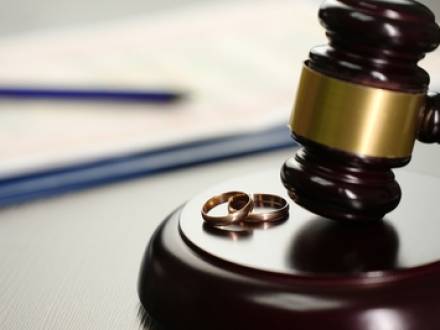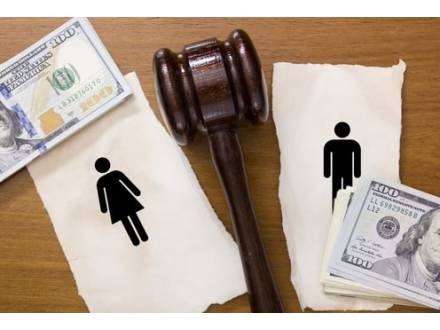Recent Blog Posts
Understanding the Legal Implications of Spousal Abandonment in Illinois
 If your spouse walked out on you, you are probably dealing with a lot of uncertainty, emotionally, financially, and legally. You are likely wondering whether what happened counts as abandonment, whether it affects your divorce, and what your rights are going forward.
If your spouse walked out on you, you are probably dealing with a lot of uncertainty, emotionally, financially, and legally. You are likely wondering whether what happened counts as abandonment, whether it affects your divorce, and what your rights are going forward.
Illinois divorce law has changed significantly in recent years, and a lot of outdated information is still circulating online. If you are considering divorce in 2026 and wondering what spousal abandonment might mean for your case, here is what you actually need to know. Our DeKalb County divorce attorney can answer further questions in a free consultation.
Does Illinois Still Recognize Spousal Abandonment as Grounds for Divorce?
This is one of the most common misconceptions we run into. The short answer is no.
Can I Stop My Ex From Seeing the Kids If He Is Behind on Child Support?
 Your ex has not paid child support in months. Bills are piling up. You are struggling to buy groceries and pay for school supplies. So when Friday comes and it is time for your ex to pick up the kids, you think about saying no. If he cannot help support the children financially, why should he get to see them?
Your ex has not paid child support in months. Bills are piling up. You are struggling to buy groceries and pay for school supplies. So when Friday comes and it is time for your ex to pick up the kids, you think about saying no. If he cannot help support the children financially, why should he get to see them?
This thinking makes sense emotionally. But legally, it can get you in serious trouble. In Illinois, child support and child custody are completely separate issues. You cannot withhold visitation because your ex is behind on support payments. Our DeKalb County child support attorney can explain your options and help you get the child support you need.
What a Guardian ad Litem Does in Custody and Divorce Cases
 A Guardian ad Litem, often called a GAL, is a person appointed by the court to represent the best interests of children during divorce or custody proceedings. The GAL is not your lawyer or your spouse's lawyer. They work on behalf of a child or children, and report directly to the judge about what they believe is best for the kids.
A Guardian ad Litem, often called a GAL, is a person appointed by the court to represent the best interests of children during divorce or custody proceedings. The GAL is not your lawyer or your spouse's lawyer. They work on behalf of a child or children, and report directly to the judge about what they believe is best for the kids.
In Illinois, the court can appoint a Guardian ad Litem under the Illinois Marriage and Dissolution of Marriage Act, 750 ILCS 5/506. The GAL investigates a family’s situation. They talk to the children and observe the parents. After the investigation, they make recommendations to the court about custody, visitation, and other issues affecting the children.
If a guardian ad litem has been appointed to your 2026 divorce or custody case, you need a good Kane County family law attorney. Your every move will be scrutinized and judged. Having the right representation can make all the difference in your case.
How is the Duration of Alimony Determined in Illinois?
 Divorce affects millions of families each year. According to the Centers for Disease Control and Prevention, there were over 600,000 divorces in the United States in recent years. For couples with income differences, spousal support (commonly called alimony) helps the lower-earning spouse maintain financial stability after divorce.
Divorce affects millions of families each year. According to the Centers for Disease Control and Prevention, there were over 600,000 divorces in the United States in recent years. For couples with income differences, spousal support (commonly called alimony) helps the lower-earning spouse maintain financial stability after divorce.
If you are going through a divorce in Illinois in 2026, understanding how long alimony payments may last is important for planning your financial future. A Geneva, IL divorce attorney can help you understand what to expect.
Can We Decide on Alimony for Ourselves?
Yes, absolutely. Illinois courts prefer to see couples figure out issues in their divorce on their own, or with the help of mediators, whenever possible. If you and your spouse can reach an agreement that feels fair to both of you, the court will likely enforce it.
How Do Courts Handle False Allegations in Divorce?
 It’s not surprising that divorce can cause strong feelings, acts of desperation, and even revenge. Sometimes, this brings out the worst in people who are willing to make accusations that are not true. False allegations in divorce can involve claims of abuse, addiction, cheating, or bad parenting. These accusations can damage your reputation and drag out your case. Even worse, false accusations have the potential to affect child custody decisions.
It’s not surprising that divorce can cause strong feelings, acts of desperation, and even revenge. Sometimes, this brings out the worst in people who are willing to make accusations that are not true. False allegations in divorce can involve claims of abuse, addiction, cheating, or bad parenting. These accusations can damage your reputation and drag out your case. Even worse, false accusations have the potential to affect child custody decisions.
Illinois courts take all allegations seriously, but judges understand that some people make false claims to gain an advantage. If your spouse is lying about you to try to get the upper hand, you need help from an experienced DeKalb County divorce attorney with The Law Office of Matthew M. Williams, P.C..
Common False Allegations in Divorce
False allegations are untrue claims one spouse makes about the other during divorce proceedings. Common types of false allegations in divorce include:
Can Divorce Records Be Sealed in Illinois?
 For many people, the idea that their divorce information will become part of the public record adds another layer of stress to an already difficult time. The good news is that in some situations, you can seal your divorce records in Illinois. This means most people will not be able to access the details of your case.
For many people, the idea that their divorce information will become part of the public record adds another layer of stress to an already difficult time. The good news is that in some situations, you can seal your divorce records in Illinois. This means most people will not be able to access the details of your case.
Understanding whether you qualify to seal your divorce records is a good place to start. If you are concerned about keeping your 2026 Illinois divorce private, our Kane County divorce attorneys can help you understand your options.
What Does It Mean to Seal Divorce Records?
When a Kane County family court seals divorce records, it restricts public access to the documents in your case. This means that people cannot simply walk into a courthouse or search online databases to find information about your divorce. Sealed records are hidden from the general public.
What is the Procedure on the Day of the Prove-Up Hearing?
 Prove-up is the term used in Illinois family courts for the final court date of a divorce. This is the date set by the judge to finalize the divorce after an agreement has been reached between the spouses. Both spouses will appear before the judge, where they will be asked a series of questions to ensure that they are in agreement and that all matters have been settled.
Prove-up is the term used in Illinois family courts for the final court date of a divorce. This is the date set by the judge to finalize the divorce after an agreement has been reached between the spouses. Both spouses will appear before the judge, where they will be asked a series of questions to ensure that they are in agreement and that all matters have been settled.
The prove-up hearing represents the culmination of your divorce process. For many couples, this brief court appearance is the only time they will see the inside of a courtroom during their divorce. Understanding what happens during prove-up and how to prepare makes the experience less stressful. If you have questions about your upcoming 2026 prove-up hearing, speaking to your St. Charles, IL family law attorney can be helpful.
Do I Have to Attend the Prove-Up Hearing?
While both spouses may attend the prove-up hearing, the Petitioner (the spouse who originally filed for divorce) is usually the only one required to attend. The Respondent can choose to appear and testify, but they are not usually required to do so. The prove-up hearing can proceed without the Respondent when they have entered an Appearance and signed the agreements.
Can Conversion Reverse the Commingling of Separate Assets?
 Many spouses are stunned when they find out during their divorce that the property, gift, or inheritance they believed was their separate property turns out to be a marital asset, thanks to commingling. If a person owns a home or other property, has an inheritance, or has amassed a sizeable bank account before marriage, these assets belong to that spouse alone unless they have been commingled.
Many spouses are stunned when they find out during their divorce that the property, gift, or inheritance they believed was their separate property turns out to be a marital asset, thanks to commingling. If a person owns a home or other property, has an inheritance, or has amassed a sizeable bank account before marriage, these assets belong to that spouse alone unless they have been commingled.
Commingling occurs when a separate asset is mixed in with marital assets, changing it into a marital asset that needs to be divided in a divorce. For example, suppose one spouse owns a home that was left to them by their great aunt. If the spouse who owns the home adds the other spouse to the title, it could easily be claimed as marital property by the second spouse in divorce court.
There are other, less obvious and often unintentional ways property can be commingled. Our Kane County divorce attorney handles complex property division cases and can help you understand what your options are.
Can I Sue My Husband for Cheating in Illinois?
 When a spouse cheats, it can destroy trust and cause deep emotional pain. Is that enough to warrant legal action in Illinois? State law handles adultery differently than it once did. While cheating may affect some parts of a divorce, it is not a reason to sue a spouse. Many people find that understanding how Illinois courts view adultery helps them feel more prepared before starting the divorce process. If you are struggling with the aftermath of infidelity, speaking with a Yorkville, IL divorce lawyer can help you make informed decisions about your legal options.
When a spouse cheats, it can destroy trust and cause deep emotional pain. Is that enough to warrant legal action in Illinois? State law handles adultery differently than it once did. While cheating may affect some parts of a divorce, it is not a reason to sue a spouse. Many people find that understanding how Illinois courts view adultery helps them feel more prepared before starting the divorce process. If you are struggling with the aftermath of infidelity, speaking with a Yorkville, IL divorce lawyer can help you make informed decisions about your legal options.
Is Adultery Grounds for Divorce in Illinois?
Illinois is a no-fault divorce state under 750 ILCS 5/401(a). This means you do not have to prove that your spouse did something wrong to end your marriage. Instead, the court only needs to see that there are irreconcilable differences, meaning your marriage has broken down beyond repair.
Workers’ Compensation Benefits in Divorce
 Workers’ compensation benefits protect employees and their families after a workplace injury or illness. These benefits give financial support while a worker recovers, helping cover medical expenses and lost wages. But when a marriage ends, people wonder how these benefits are treated in a divorce.
Workers’ compensation benefits protect employees and their families after a workplace injury or illness. These benefits give financial support while a worker recovers, helping cover medical expenses and lost wages. But when a marriage ends, people wonder how these benefits are treated in a divorce.
If you are going through a divorce in Illinois in 2025 and you or your spouse are receiving workers’ compensation benefits or a personal injury settlement, you probably have questions. Our Aurora, IL divorce attorneys can help you understand how workers’ comp and other settlements are handled in a divorce and answer any other questions you have.
Are Workers’ Compensation Benefits Considered Marital Property in Illinois?
Under the Illinois Marriage and Dissolution of Marriage Act, property is categorized as either marital or non-marital during a divorce. Marital property includes assets that were acquired during the marriage, while non-marital property is usually assets one spouse owned before the marriage. Inheritance or gifts that were given specifically to one spouse may also be non-marital property.

 630-409-8184
630-409-8184













